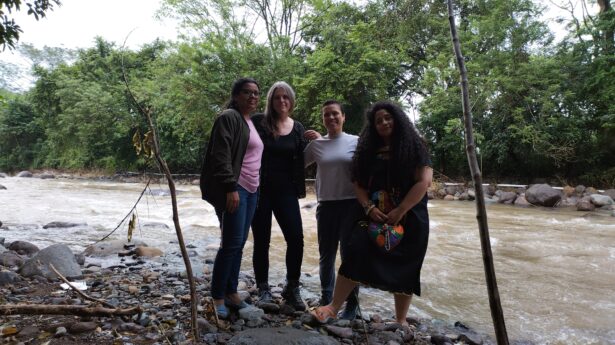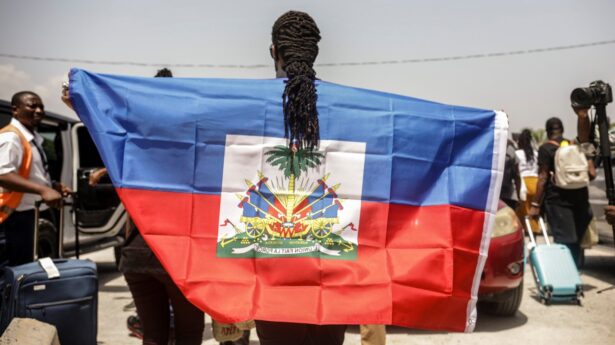The Unitarian Universalist Service Committee advances human rights through grassroots collaborations.
In Their Own Words: What We Need Is Affordability

July 8, 2015
An interview with Maureen Taylor
UUSC works with the Michigan Welfare Rights Organization (MWRO), a partner in Detroit, to advance the human right to water and stop the mass water shutoffs that began in 2014. Maureen Taylor, MWRO’s state chair, speaks below about the growing movement for water affordability.
Some people don’t understand the struggles that communities are facing with water shutoffs. Some people say that water can’t be free. How would you reply to help them appreciate the fundamental rights at stake?
No one has suggested that water be free. Based on the economic decline that Detroit and surrounding communities have been going through since the Great Recession, we have been trying to structure something called the water affordability plan. We’re not talking about people not paying; we’re talking about people paying water bills based on their income.
This issue of access to water — and, on the other side, denying access to water — is a deeper and essential spiritual problem. To come forward and suggest that large groups of low-income people ought to have water service denied because they can’t pay rising water bills — those are voices coming from the dark side.
You recently convened a groundbreaking International Social Movements Gathering for Affordable Water and Housing — how did it go?
The May gathering was a deeper event than even I had anticipated. It had a longitude and latitude much wider and much higher than I expected. It was outstanding in that it drew representatives from more than six countries and more than 38 states. There was a wide range of folks that Skyped in and live streamed. I had anticipated that there would be no more than 20, 25, maybe as many as 40 people who would be interested in the plight of low-income Detroiters and this particular issue. So I was pleasantly surprised when we had to close registration at 323 attendees. I think, all in all, that it was a huge success. Time will tell, based on whether we’ll have an opportunity to expand on some of the recommendations that were made.
We had some special guests at the gathering: U.S. Representative John Conyers, Michigan State Representative Stephanie Chang, U.N. Special Rapporteur on the Human Right to Water and Sanitation Leo Heller. We had people from Brazil, Italy, Mexico, Canada. People from Portland, Oregon, to New Orleans, to New York, to California, to Virginia. Quite a showing! The heartbeat of all of the distance participants was Emma Denise Rose, from her hospital bed in ICU in Oakland, California, where she has been ill with cerebral palsy. Her statement had to do with how difficult it is for people with extreme disabilities to get access to clean water and sanitation.
While we were finishing up, we began the next step with a hearing at the state capital in Michigan, at which many Detroiters and folks from Highland Park and other communities suffering these water losses presented their stories. In Lansing, there is a statue of a young Helen Keller with her hand under a water pump; it commemorates the moment that finally she understood that what w-a-t-e-r meant. This statue met our colleagues and comrades from across the state who traveled to Lansing to talk about why w-a-t-e-r is important. June 1 marks the day when Keller passed away, and here it is June again and we’re leaving a period of enlightenment and entering another period of darkness with regards to water.
What is the biggest challenge MWRO and allies are grappling with right now?
Probably the biggest issue is this divisive narrative that suggests Detroiters, low-income Detroiters — most of whom are African American — are not interested in anything but free water. This false narrative says we have hidden resources, and it’s not that we cannot pay our water bills, it’s just that we’re one shade south of being criminals and we don’t want to pay our water bills, we want someone else to pay for us. This lie is a constant battle, a constant specter in the face of truth, and might be the most formidable barrier in the movement toward the concept of water as a human right and something that cannot be commodified.
What would you like to see happen moving forward? What’s your dream?
The next big hurdle is to get a water affordability plan instituted in and around Detroit, throughout the state of Michigan. That would not only validate our struggle, but it would put it into place in perpetuity an option for low-income families to be able to pay monthly water bills based on their income. It would eliminate the scourge of mass water shutoffs; it would take that off the table.
Our short-term goal is to install that — water affordability — as a program. Water assistance [from the government] means that there is a pot of money and a lifetime limit — once those dollars are expended, that’s it, so that people who are unable to qualify or negotiate eligibility criteria can’t get help once those dollars are gone. Assistance does not solve the problem, it’s not what we need; what we do need is affordability. That would be an outstanding victory for welfare rights and the People’s Water Board.
What do you find most inspiring in this work? What keeps you going?
I am in pain when I hear elected officials or corporate entities suggest that low-income people do not have the right to have water. What keeps me going is, when I hear that kind of draconian, backwards, fascist kind of statement, the flames in my heart are ignited. My stomach hurts first, and the rest of my body is wounded. I don’t feel like I can take another step, but that’s because the engines in my heart are lighting up, and after about 45 seconds, I am at a red-hot position and ready to do battle with folks who would suggest that you can’t have water if you can’t pay for it. This is a spiritual fight to me. I can’t imagine what kind of a person, what kind of a community, what kind of a legislature, what kind of a government, what kind of a country would go to that length to punish people because they are poor by saying that what you need to continue your life and cleanliness, we’re gonna take it away.
Is there anything else that you would like UUSC supporters to know about the work that you are doing or about water affordability in general?
UUSC supporters and Unitarian Universalist church members have been quite a surprise and a blessing. We have been involved in this fight to make certain that everybody has access to water and that it remains a human right for quite some time, without the benefit of clergy and other people of faith and conscience. When UUs began to get involved, we were all a little skeptical — we’ve heard that before. But when you decided on your own that you wanted to stick and stay, we were quite pleased.
If there’s anything else we would ask of you, it would be to continue to pray for our strength and to stay involved! Get your families and friends, your listservs, etc. to sign petitions and speak out. We want government officials to see it’s not just the folks in Detroit or Flint or Baltimore, it’s not just a handful of us — we have people from across the nation and around the world who feel how we feel. I praise UUSC and UUs for their involvement — thank you for what you’ve done so far, and it would be appreciated if you could help us go even further.
Visit uusc.org/water for the more on UUSC’s work to advance the human right to water as well as updates and action opportunities.

